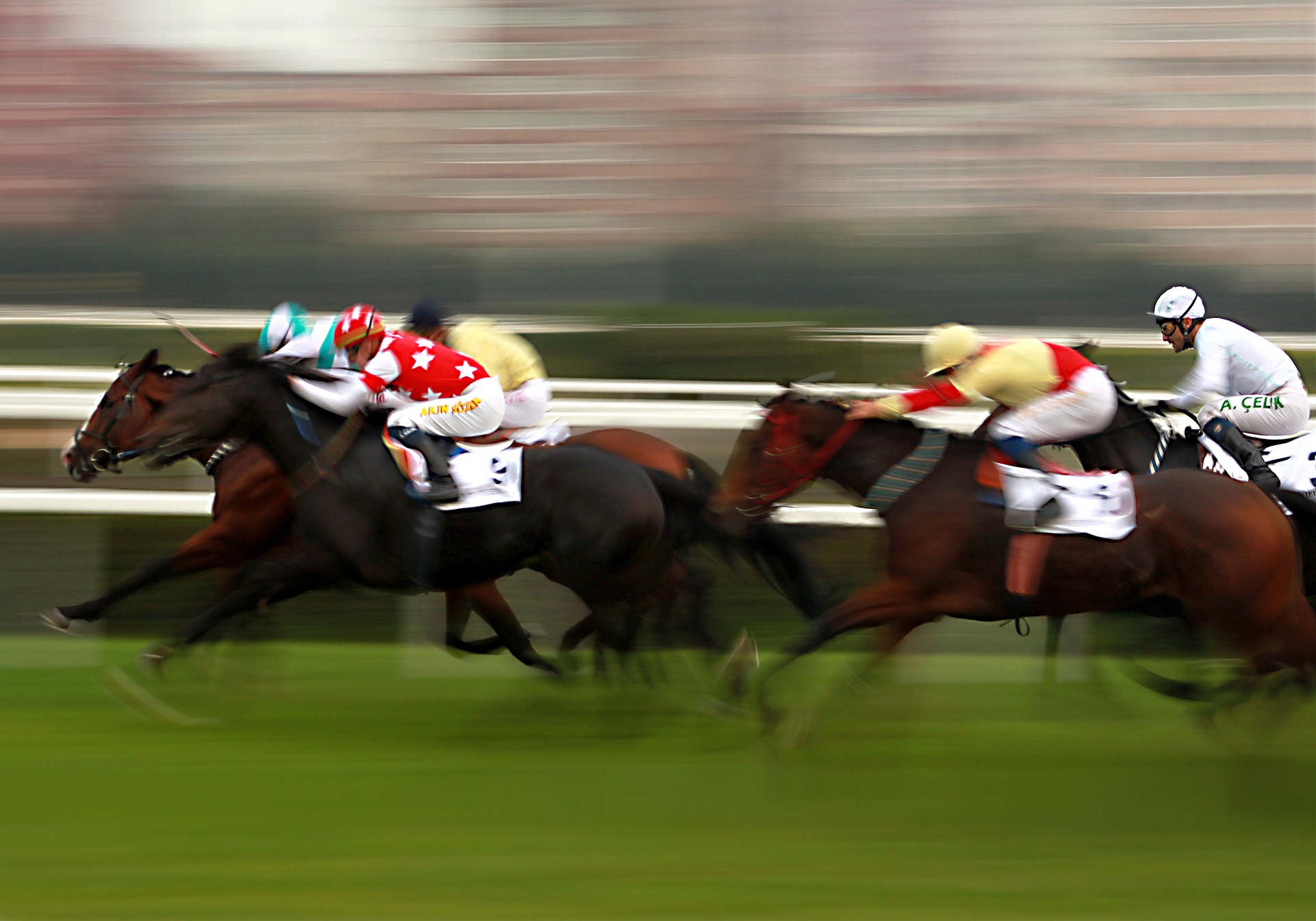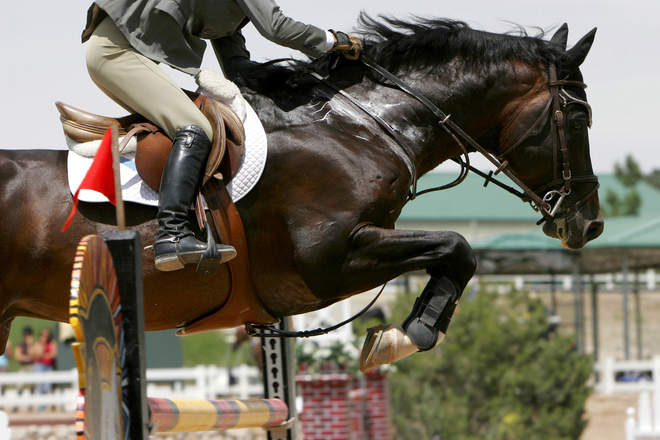Performance horses require specialized nutrition to meet the demands of their rigorous training and competition schedules. Feeding your equine athlete the right diet can make all the difference in their performance, recovery, and overall health. Performance horse feed is designed to provide optimal nutrition for these high-performing animals.
This article will explore the nutritional needs of performance horses and explain how performance horse feed can help fuel their success. We will discuss the benefits of feeding your horse a specialized diet, as well as key ingredients to look for when choosing a performance horse feed. By understanding these important factors, you can make informed decisions about what to feed your equine athlete for optimal health and performance.
Understanding the Nutrition Needs of Performance Horses
By understanding the unique nutritional requirements of horses involved in high-performance activities, horse owners and trainers can provide appropriate diets that support optimal health and performance. Performance horses require a balanced diet that provides all essential nutrients in sufficient amounts to meet their energy needs. The primary nutrients required by these horses include carbohydrates, fats, proteins, vitamins, minerals, and water. Carbohydrates are the main source of energy for performance horses as they participate in high-intensity exercises that require quick bursts of energy. Fats are also an important source of energy for these horses as they help to maintain body weight and provide sustained energy during long-distance activities.
Balancing nutrients is crucial when formulating diets for performance horses. An imbalance or deficiency in any nutrient can lead to poor health outcomes such as fatigue, weakness, muscle damage or injury. Hence it is necessary to consult with equine nutritionists who can develop customised feeding plans suitable to each horse’s individual needs based on their breed type, activity level and metabolism rate. Additionally, feeding schedules should be structured around the horse’s exercise routine so that they have enough time between meals before engaging in strenuous physical activity. Therefore owners must ensure that their performance horses receive well-balanced diets consisting of appropriate amounts of essential nutrients at regular intervals to support optimal health and peak athletic performance.
Benefits of Performance Horse Feed
The advantages of utilizing specialized food for equine athletes have been extensively researched and documented, affirming its ability to provide an ample supply of nutrients to support the muscle development and overall health of performance horses. Performance horse feed is designed specifically to meet the nutritional needs of horses engaged in high-intensity activities such as racing, eventing, or show jumping. This type of feed contains a balanced blend of carbohydrates, protein, fats, vitamins, minerals, and electrolytes that are essential for maintaining optimal health and performance.
Improved endurance, enhanced muscle development, higher energy levels, and better recovery times are some benefits associated with feeding performance horse feed. The high-quality protein in this type of feed helps promote muscle growth and repair while also aiding in post-workout recovery. The added fat content provides a source of slow-release energy that can sustain horses through prolonged periods of intense activity. Additionally, the inclusion of electrolytes in performance horse feed helps replace important minerals lost through sweat during exercise. Overall, incorporating specialized feed into the diet plan can help ensure that performance horses receive the necessary nutrients to compete at their best while minimizing the risk of injury or fatigue.
Key Ingredients to Look for in Performance Horse Feed
Understanding the essential components of specialized equine nutrition can play a crucial role in supporting the physical and mental well-being of high-performance horses. One of the key ingredients to look for in performance horse feed is protein quality. High-quality protein sources, such as soybean meal or alfalfa, are vital for muscle development and repair. The amino acids found in these proteins are necessary for tissue growth and regeneration after intense workouts, making them particularly important for athletic horses.
Another important component to consider when choosing performance horse feed is digestible energy sources. Horses require a consistent source of energy to maintain their weight and fuel their activities. Carbohydrates, fats, and fiber are all potential sources of digestible energy; however, not all sources are created equal. Choosing high-quality options that provide sustained energy release can be beneficial for performance horses during extended periods of exertion. For example, feeding highly digestible carbohydrates like corn or oats may help support optimal performance levels by providing readily available glucose to working muscles while minimizing digestive upset commonly associated with fibrous feeds.
Choosing the Right Performance Horse Feed for Your Equine Athlete
Selecting appropriate nutrition for equine athletes is a crucial task that requires careful consideration of various essential components, such as protein quality and digestible energy sources. Brands comparison is an important aspect to consider when choosing the right performance horse feed for your equine athlete. It is recommended to look for reputable brands with a proven track record in providing high-quality feeds designed specifically for horses’ nutritional needs. By doing so, you can ensure that your horse is getting the best possible nutrition available.
Another crucial factor to consider when selecting performance horse feed is feeding schedule. Horses have unique dietary requirements based on their activity level, age, weight, and breed. Feeding schedules should be tailored to your horse’s specific needs to avoid under or overfeeding them. It is recommended to divide the daily ration into small meals throughout the day rather than giving large portions at once. This practice will help maintain a steady supply of nutrients and prevent digestive issues that may arise from consuming too much food at once. Overall, choosing the right performance horse feed requires careful research and consideration of various factors such as brand reputation and feeding schedule tailored to your equine athlete’s specific needs.
Frequently Asked Questions
Can Performance Horse Feed Be Harmful To Horses With Certain Health Conditions?
Performance horse feed may not be suitable for horses with certain health conditions due to the presence of harmful ingredients. For instance, horses with insulin resistance or equine metabolic syndrome should avoid feeds that contain high amounts of sugars and starches as they can aggravate these conditions. Additionally, some feeds contain artificial preservatives, colors, and flavors that can cause allergic reactions or digestive problems in sensitive horses. Therefore, alternative options such as low-starch feeds or natural supplements may be more appropriate for such horses. It is crucial to consult a veterinarian or equine nutritionist before changing a horse’s diet to ensure that it meets their specific nutritional needs while minimizing the risk of adverse effects.
Are There Any Risks Associated With Feeding Performance Horse Feed To Young Horses?
Potential risks associated with feeding performance horse feed to young horses include the risk of developmental orthopedic disease, which can be caused by an imbalanced diet high in starch and sugar. This condition can lead to skeletal abnormalities, joint issues, and lameness. Additionally, young horses may not require the same level of energy provided by performance horse feed as older, more active horses. Alternative options for feeding young horses include hay or haylage, balanced grain mixtures designed specifically for young horses, and appropriate levels of vitamins and minerals. It is important for horse owners to consult with a veterinarian or equine nutritionist when deciding on a feeding plan for their young horses to ensure that all nutritional needs are being met without risking potential health issues.
How Often Should Performance Horse Feed Be Given To Horses In Training?
Feeding frequency and optimal timing of performance horse feed are crucial in maintaining a horse’s health and improving their athletic abilities. Studies have shown that horses in training require a higher caloric intake than those at rest, with an average increase of 1-2 pounds of feed per day for every hour of exercise. However, overfeeding can lead to health issues such as colic or laminitis, making it essential to monitor feeding schedules closely. Optimal timing is also critical, as feeding too close to exercise may cause digestive discomfort and hinder performance. It is recommended to feed smaller meals throughout the day rather than one large meal to promote better digestion and nutrient absorption. Overall, proper feeding frequency and timing are integral components in maximizing a performance horse’s potential while ensuring their long-term well-being.
What Is The Recommended Serving Size For Performance Horse Feed?
Calculating calories and balancing nutrients are key factors in determining the recommended serving size for performance horse feed. The amount of feed needed will vary based on the horse’s activity level, age, and overall health. To determine the correct serving size, it is important to consider both the energy requirements of the horse as well as their nutrient needs. Adjustments may need to be made for horses with higher levels of physical activity or those that are older. By carefully measuring out the appropriate serving size, owners can ensure their horses receive optimal nutrition to support their athletic performance and overall health.
Can Performance Horse Feed Be Used As A Substitute For Hay Or Pasture?
The debate of hay vs feed for horses has been an ongoing topic in the equine industry. While hay and pasture are considered as natural food sources for horses, performance horse feed has gained popularity among horse owners due to its convenience and nutritional value. However, it is important to note that performance horse feed should not be used as a complete substitute for hay or pasture. Hay provides essential fiber and roughage necessary for proper digestion, while performance horse feeds are designed to supplement a balanced diet with additional nutrients. Thus, the combination of both hay and performance horse feed can provide optimal nutrition for horses.
Conclusion
In conclusion, feeding your performance horse with the right blend of nutrients is essential for optimal performance. A diet that is rich in protein, fat, fiber, vitamins and minerals can provide your equine athlete with the energy required to perform at their best. Choosing a high-quality performance horse feed can make all the difference in helping your horse achieve success.
As Aristotle once said, “Excellence is never an accident; it is always the result of high intention, sincere effort, intelligent direction, skillful execution and the vision to see obstacles as opportunities.” By fueling your horse’s success with performance horse feed, you are taking intentional steps towards achieving excellence and giving them the opportunity to reach their full athletic potential. So invest in your equine athlete’s future today by choosing a premium quality performance horse feed that provides all the necessary nutrients they need to excel.





